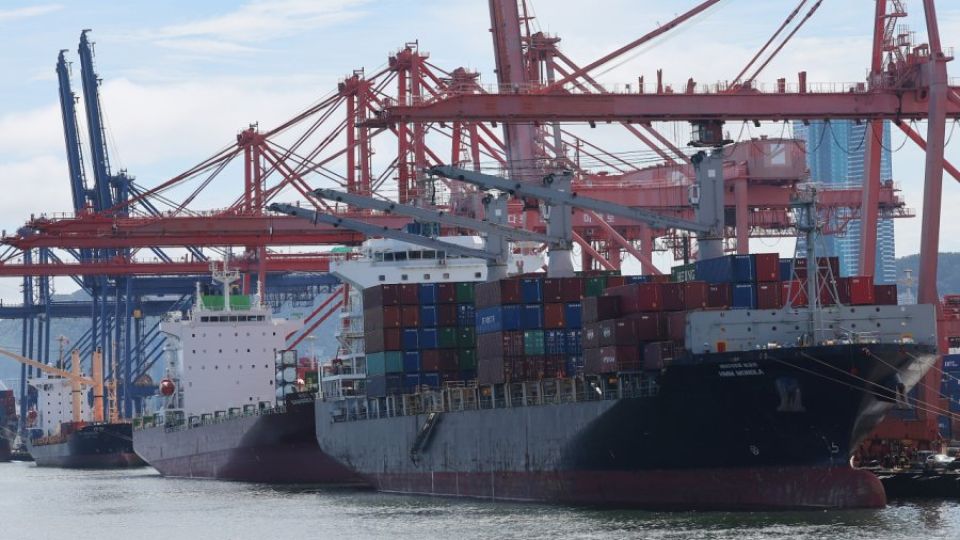July 26, 2023
SEOUL – South Korea’s economy has managed to avoid negative growth by expanding 0.6 percent in the April-June period from the previous quarter, the Bank of Korea said Tuesday, chiefly due to imports that fell even more sharply than the country‘s weak exports.
According to preliminary data from the BOK, the country’s gross domestic product, a key measure of economic growth which refers to the value of all goods and services created, showed a 0.6 percent on-quarter increase. The growth rate for the first half of 2023 stood at 0.9 percent when compared with the same period last year, 0.1 percentage point higher than the forecast made by the central bank.
Though the 0.9 percent growth surpassed expectations, the figures show a grim outlook for Asia‘s fourth-largest economy as consumption and investment were slow in the second quarter.
The latest data showed private spending — which kept the economy from contracting in the previous quarter — dropped by 0.1 percent as service consumption for foods and accommodations slowed.
Public spending contracted by 1.9 percent, the biggest drop since the 2.3 percent recorded in the first quarter of 1997, when the country was hit by a financial crisis. The BOK attributed the decrease in government spending to less spending on COVID-19 disinfections or the flu. Investment on construction edged up on a minus 0.3 percent contraction, facility investment at minus 0.2 percent.
The contribution of domestic consumption to economic growth fell to minus 0.6 percent, dropping into the minus range for the first time since the first quarter of 2022.
Meanwhile, exports in the second quarter remained steady. Net exports contributed 1.3 percentage points to Korea‘s economic growth in the period, marking a large increase from the minus 0.2 percentage point of the previous quarter.
However, overall exports dropped by 1.8 percent, as exports for oil products and transportation service plunged despite the increase in sales for chips and automobiles.
Imports showed a larger drop due to decreased bills for crude oil and natural gas, offsetting the limited exports and enabling net exports to lead economic growth.
“Consumption related to face-to-face activities dropped after jumping earlier this year following the lifting of social distancing measures. Spending was slow even during the ‘golden holidays‘ period of May due to bad weather,” said Shin Seung-chul, director general of the BOK’s economic statistics division.
The 0.6 percent increase was an improvement from the 0.3 percent growth during the previous quarter and the 0.3 percent contraction during the fourth quarter of 2022. But it still falls short when compared to how the economy grew by 0.9 percent in the second quarter of 2022.
Still, the BOK assessed that the Korean economy is slowly getting back on track, saying that boosted exports of chips and automobiles contributed the second quarter growth.
The 0.9 percent economic growth for the first half of 2023 exceeds the central bank’s expectations, which were for 0.8 percent growth.
“If the economy grows by 1.7 percent in the second half of the year, backed by 0.7 percent growth from both the third and fourth quarters of 2023, the yearly growth rate will reach 1.4 percent,” Shin said. The BOK had initially projected that the Korean economy would grow by 1.4 percent this year.
The central bank projects growth to recover from the third quarter, similar to how the government expects the economy to pick up in the latter half of 2023 after a slump in the earlier part of the year.
“In the third quarter, private consumption will show slow recovery based on positive consumer sentiment, and temporary factors affecting public spending will be resolved,” Shin said.


